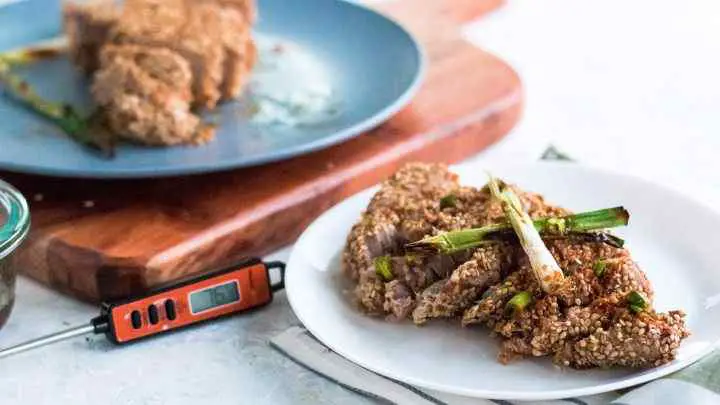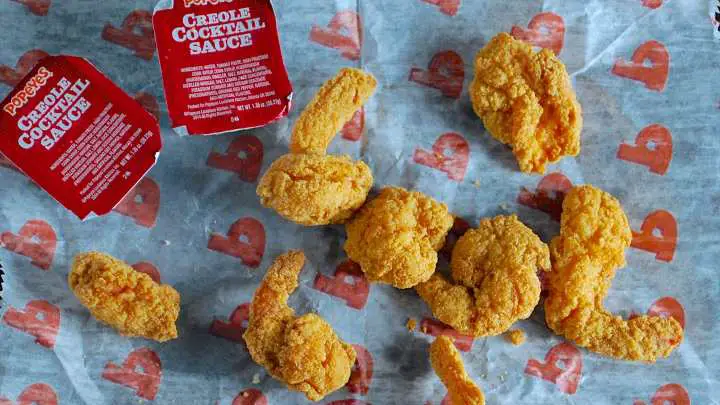As humans, it is understandable to be wary of things involved in the process of making the food we consume. So yes, I understand your concern and why you are asking if food thermometers are safe. Unlike some other cooking ingredients, which may not be friendly to our bodies, food thermometers are quite safe.
Food thermometers are used to check the internal temperature of foods when cooking or after cooking. Of course, there are various types of food thermometers. Each of them has its uses based on the type of food they are best for and how they function.
Nonetheless, you have to be rest assured that food thermometers are mostly safe for kitchen use.
Usually, food thermometers are found in stores, used in cooking classes, and in homes. They vary and importantly, help us in the process of cooking great meals that are also disease-free.
Therefore, you have to know everything about the needle-like metal that pierces your food. This article will guide you in answering if food thermometers are safe and why you need to use them properly in the kitchen.
SEE: A Food Thermometer Guide for Those Who Take Food Safety Seriously
Is a Food Thermometer Safe?
A food thermometer is only as safe as you keep it. Ordinarily, they are cool instruments found in the kitchen. They help us to stop relying on color change, firmness, or tenderness to know when our meat is done.
Most importantly, they help us to cook our meals to the temperature where all bacteria are killed. Food thermometers are safe, good, and important.
However, when they are not taken care of properly, they may become dangerous. Did you wash and sanitize your food thermometer after the last use, or did you leave it lying around where disease vectors or your pet can access it?
Food thermometers, like any other tools used in the kitchen, can spread germs if not taken care of. You leave your bowls, with food crumbles, and in a few weeks, you’ll notice bugs, mosses, and other diseases causing vectors around it. This also applies to your food thermometer when you don’t clean it properly after use.
Using a food thermometer while maintaining good hygiene is the best way to keep it safe. Thermometers are safe and the only hazard they can cause are poor hygiene practices.
Expert Opinion on Using Food Thermometers
Still not convinced that the food thermometer is safe? We sourced an expert’s view.
In the latest research, a Kansas State University food specialist said that a food thermometer not only helps to indicate the internal temperature of cooked food, but it also helps to increase the quality of the end product.
The specialist, Blakeslee explained that a food thermometer is an essential tool for everyone when cooking at home. This is because using it has a lot of health advantages that save and protect.
Whether you are an amateur cook or an expert cook, making use of the food thermometer makes you a better cook, as it helps to monitor the important internal temperature. An important factor that she finally added to maintaining the thermometer’s safety is cleaning after every use.
Should You Use a Food Thermometer?
Yes, you should. Everyone should use a food thermometer to monitor their cooking and produce healthy meals for their family.
Generally, the use of a food thermometer may make one appear like an amateur who cannot decide on their own, based on experience that their meal is ready. But, the fact is since a food thermometer exists, we all should make use of it.
Following your grandmother’s style of using tenderness and firmness to tell when your meat is done, is fast becoming old. What if your chicken changed color but is still uncooked on the inside? Do you serve your family a bacteria-filled uncooked chicken? This is only one of the reasons why you need a food thermometer.
In addition, take note that:
- 145°F is the ideal temperature when cooking beef, pork, fish steak, veal, and all types of roasts and chops.
- 155°F -160°F is the ideal temperature for ground meat, groundfish, and all types of egg dishes.
- 165°F is the ideal temperature for all cooking involving poultry and wild games.
Use this to determine the internal temperature of your food and you’ll get good meals, free from bacteria.
SEE: How to Use a Food Thermometer to Avoid Undone Meal
Is the Mercury in the Food Thermometer Safe?
No, it isn’t. Generally, mercury is toxic to humans, and exposure to a large amount of it is dangerous. Mercury is found in one of the liquid-in-glass types of thermometers. The liquid-in-glass thermometer is safe, the only hazard being the breakage of the thermometer and loss of constituent.
Nonetheless, the chance that a mercury thermometer will break into your food is slim, except if it hits a very large and heavy object.
The liquid-in-glass is only one of the many types of food thermometer that exists. So, you can choose not to use them. There are other varieties of thermometers like the digital thermometer and the thermometer-fork combination.
What Makes Food Thermometers Unsafe?
Listed below are some things to avoid. They make the use of your thermometer unsafe.
1. Use of an inaccurate thermometer
Using an inaccurate thermometer means that most of the readings you get from your thermometer are wrong and incorrect. The readings you get may be more than or less than the real reading. Therefore, misleading you and confusing your judgment.
An inaccurate thermometer may be dangerous if it shows you values higher than the real value. When this happens, you will not cook your food to the normal temperature, because you assume it’s reached.
2. Breakage of liquid thermometer
It is highly unlikely that this happens; however, in the slight chances that it does take place, food harboring the thermometer at that moment is unsafe to consume.
Mercury is dangerous to human, but are only found in the liquid in glass type of thermometer. You can totally avoid exposure to this hazard by using other types of thermometers.
3. Poor hygiene
A thermometer becomes unsafe if it is not cleaned and sanitized properly after each use. If not washed, it is exposed to germs, which are transmitted into the next meal. When not properly stored after use, your pets may have access to it. Your pet’s mouth has been on various things outside, it should not be on your meal.
Just like you wash your hands after cooking meals, ensure that you wash your thermometer. Also, keep it properly after every use.
SEE: Get a Chance to Win a $500 Gift Card at Giant Foods
How to Keep Your Food Thermometer Safe
- Clean, wash and sanitize to prevent contamination.
- Store away in a safe place, preferably a covered area in a zipped bag. This way is protected from elements and damages from loads.
- Protect it from direct sunlight.
- Avoid contact with structures that may damage the glass or weaken it.
SEE: Are Food Thermometers Accurate?
FAQs
Can you sanitize a food thermometer?
Yes, you can. It helps to disinfect the thermometer- get rid of germs and other possible contaminants.
Do this by sterilizing or disinfecting your thermometer using an alcohol wipe or sanitizing solution. To get an effective result, use disinfectants with at least 70% alcohol. If that is not available, there is the option of holding the thermometer stem in boiling water.
It is not advised to submerge the whole thermometer in hot water.
How long does it take to disinfect a food thermometer?
It only takes about 15-20 minutes, depending on the procedure you are using.
Do you need to clean your food thermometer?
Yes, you do. It is very important to clean your thermometer after every use to save yourself and your family. An unclean thermometer will harbor germs and cause life-threatening diseases.
Do digital thermometers have mercury?
No, they don’t. The digital thermometer uses another means – the thermal resistor to take readings. They have no mercury content.
Can a food thermometer cause cancer?
No, a food thermometer cannot cause cancer. Cancer is caused by exposure to unpleasant radiation and the consumption of carcinogenic substances. There is no established relationship between cancer and the use of a food thermometer.
Conclusion
To anyone, food thermometers have more advantages than disadvantages. They are helpful and could save us from consuming the bacteria in many of the foods we consume while also helping with cooking.
The unsafe parts are the potential of breaking and contamination after use are disadvantages that can be prevented. These two can always be worked on and monitored to make the food thermometer 100% safe.
Thanks for reading.
Loved this article? You can read more on Cheffist.






